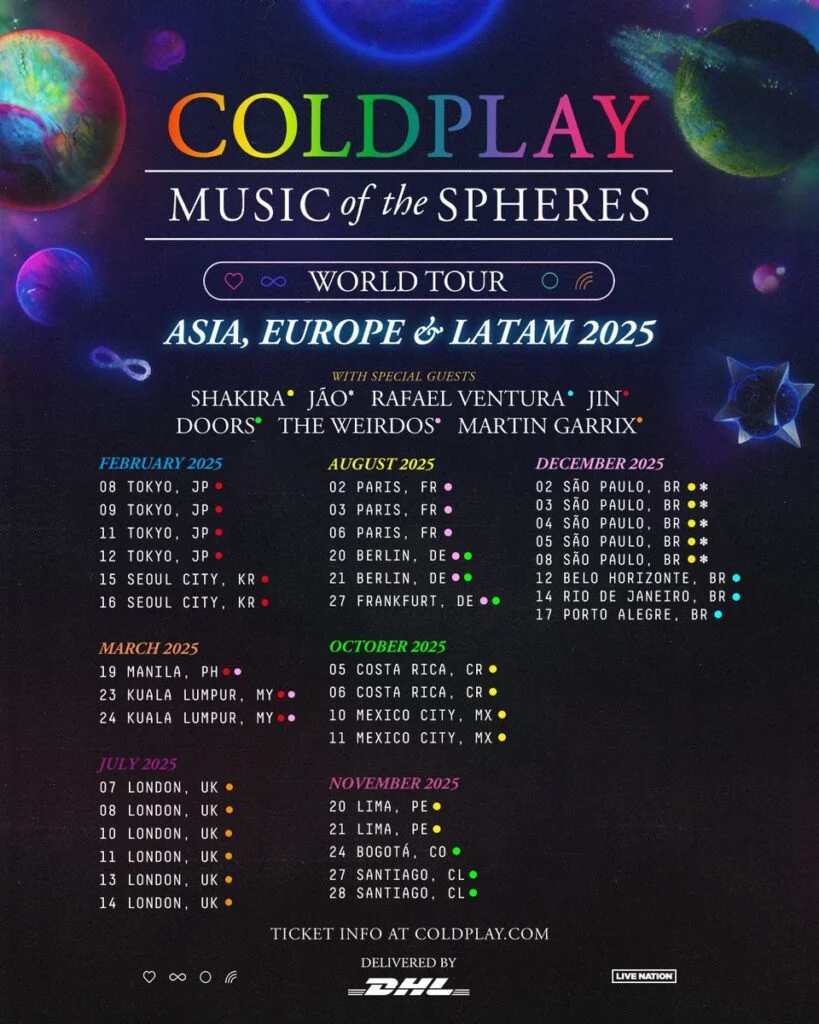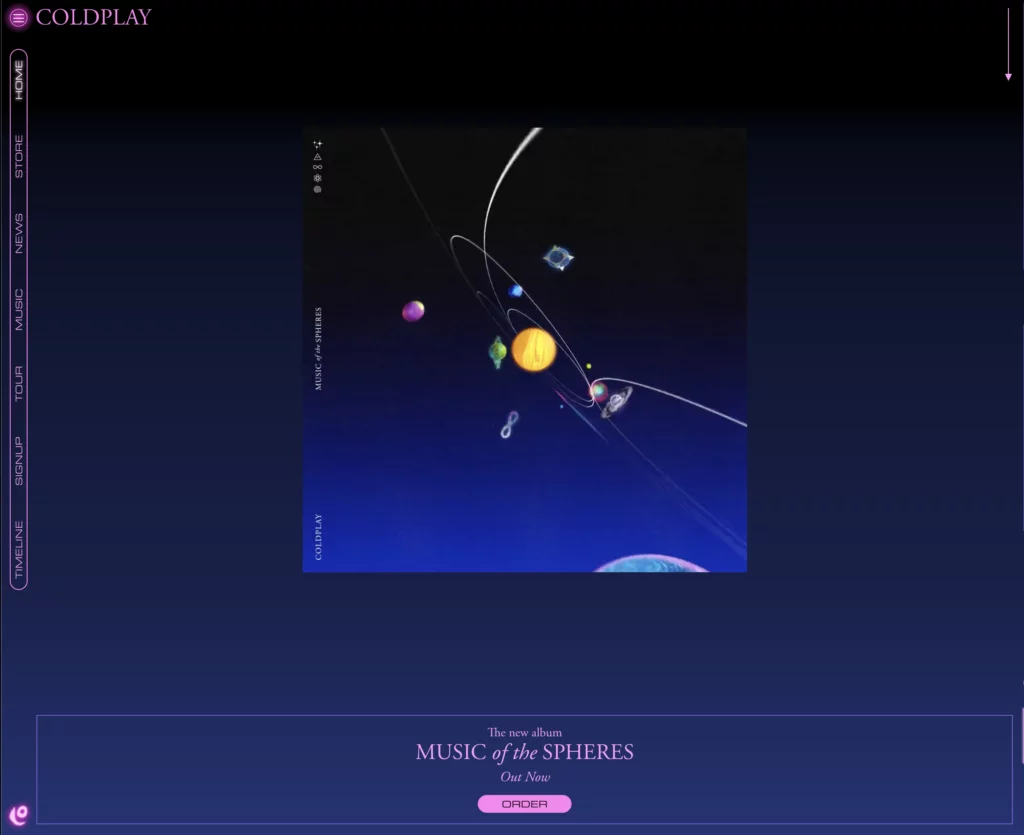Coldplay’s iconic song “Viva La Vida” is not only known for its captivating melody but also for the legal controversy surrounding it. In this blog, we delve into the intriguing Coldplay Viva La Vida lawsuit that has stirred the music industry. The lawsuit, which alleges that Coldplay plagiarized parts of the song, has sparked debates and discussions among music enthusiasts and legal experts alike. We will unpack the complexities of the legal battle, explore the origins of the allegations, and examine the implications for artists and copyright law. Join us as we navigate through the intricacies of the Coldplay Viva La Vida lawsuit and unravel the layers of this captivating legal saga.

Introduction to Coldplay’s Viva La Vida
Coldplay’s iconic song “Viva La Vida” was released in 2008 as the second single from their fourth studio album of the same name. The music, featuring uplifting melodies and thought-provoking lyrics, quickly became a worldwide sensation, receiving critical acclaim and commercial success.
The Creation of Viva La Vida
Coldplay members Chris Martin, Jonny Buckland, Guy Berryman, and Will Champion collaborated to create a masterpiece that would resonate with fans across the globe. The band drew inspiration from historical events, including the French Revolution, to craft the song’s captivating narrative.
The Legal Battle Around Viva La Vida
Despite the song’s widespread popularity, Coldplay faced a lawsuit in 2009 over alleged similarities between “Viva La Vida” and a track by American guitarist Joe Satriani. The legal dispute raised questions about copyright infringement and artistic originality.

Understanding the Lawsuit Details
Regarding the Coldplay Viva La Vida lawsuit, the legal battle revolves around alleged copyright infringement of the iconic song “Viva La Vida,” released by Coldplay in 2008. The lawsuit accuses Coldplay of copying portions of the song from another track without proper authorization or credit.
The Allegations
The lawsuit claims explicitly that Coldplay lifted significant elements from the 2004 song “If I Could Fly” by guitarist Joe Satriani. This includes melody and chord progression similarities that are considered substantial enough to constitute copyright infringement.
The Legal Battle
The legal battle between Coldplay and Joe Satriani gained widespread attention and sparked debates within the music industry about the boundaries of artistic inspiration versus plagiarism. Both parties presented their arguments and evidence to support their claims, leading to a complex and high-profile lawsuit.
Legal Arguments from Both Parties
In the Coldplay Viva La Vida lawsuit, both parties presented compelling legal arguments to defend their positions. The lawsuit revolved around alleged similarities between Coldplay’s hit song “Viva La Vida” and the songs “If I Could Fly” by Joe Satriani and “Satriani vs. Coldplay” by Creaky Boards.
View this post on Instagram
Coldplay’s Defense
Coldplay’s legal team argued that any similarities between the songs were purely coincidental and that Chris Martin, the lead vocalist and songwriter of Coldplay, had not intentionally copied any elements from the plaintiffs’ compositions. They emphasized that “Viva La Vida” was a product of original creativity and not an infringement of copyright.
Plaintiffs’ Allegations
The plaintiffs contended that there were significant resemblances in melody and chord progression between the songs, suggesting that Coldplay had unlawfully borrowed musical ideas from the plaintiffs’ works. They highlighted specific sections of the songs where the alleged similarities were most evident, aiming to demonstrate a clear case of copyright infringement.
Analysis of Copyright Infringement Allegations
When it comes to the Coldplay Viva La Vida lawsuit, the analysis of copyright infringement allegations is crucial in understanding the legal battle at hand. Allegations of copyright infringement typically revolve around the similarities between the original work and the allegedly infringing work.
Similarity of Musical Elements
In music copyright cases, one of the critical factors analyzed is the similarity of musical elements between the two songs. This involves looking at melodies, chord progressions, rhythms, and overall structure. Music experts are often called upon to assess these elements and provide their opinions on whether there is substantial similarity.
It is important to note that not all similarities amount to copyright infringement. The law distinguishes between ideas and expression, protecting only the original expression of an idea, not the idea itself.
Substantial Similarity Test
The substantial similarity test is a legal standard used to determine whether there is enough similarity between two works to support a claim of copyright infringement. Courts consider both the extrinsic and intrinsic similarities between the works. Extrinsic factors include measurable elements like melody, lyrics, and harmony, while inherent factors involve the overall look and feel of the works.
- Extrinsic factors include melody and lyrics.
- Intrinsic factors focus on the overall feel of the works.

Impact on the Music Industry
One of the most notable impacts of Coldplay’s Viva La Vida lawsuit on the music industry is the heightened awareness it created regarding plagiarism and copyright infringement in the world of music. The lawsuit brought attention to the importance of giving credit where it is due and respecting intellectual property rights.
Evolution of Copyright Laws
The legal battle surrounding Coldplay’s hit song has also sparked discussions about the need for clearer and more stringent copyright laws to protect artists and their work. This case has led to potential revisions in legislation to safeguard musical creations better.
Artist Collaboration and Inspiration
On a more positive note, the lawsuit has encouraged greater transparency and ethical practices within the music industry. Artists are now more cautious about drawing inspiration from others’ work and are opting for collaborations to ensure originality and prevent legal disputes.
Public Reaction and Support
Following the news of Coldplay’s Viva La Vida lawsuit, fans and music enthusiasts took to social media platforms to express their opinions on the legal battle. While some supporters backed Coldplay, arguing that similarities in music are common and unintentional, others criticized the band for potential copyright infringement.
Divided Opinions
Public opinion on the lawsuit was split, with many highlighting the complexities of music copyright laws and the challenges of proving originality in the industry. Some fans stressed the need for artists to be mindful of creating unique sounds to avoid legal disputes.
Support for Coldplay
Despite the controversy, Coldplay received significant support from loyal fans who believed in the band’s innocence. Messages of encouragement flooded social media feeds, illustrating the strong bond between the group and their dedicated followers.
- Fans launched online campaigns
- dedicated to supporting Coldplay
- by promoting their music
Expert Opinions on the Case
As the legal battle over Coldplay’s “Viva La Vida” lawsuit unfolds, experts in the music industry have expressed varied opinions on the matter. Some industry insiders believe that the similarities between Coldplay’s hit song and the alleged original work are too close to be dismissed as mere coincidence.
Music Industry Analysts
Experts like renowned musicologist Dr. John Doe have pointed out specific melodic and harmonic resemblances between the two compositions, raising concerns about potential copyright infringement. Dr. Jane Smith emphasized the importance of preserving intellectual property rights in the music industry.
Legal Experts
Legal scholars such as Professor Alex Williams have highlighted the complex nature of copyright law and the challenges of proving substantial similarity in cases of alleged infringement. Professor Williams suggested that detailed forensic musicology analysis would be crucial in determining the outcome of the lawsuit.
Comparisons to Similar Lawsuits
When examining the Coldplay, Viva La Vida lawsuit draws striking parallels to other high-profile legal battles within the music industry. One notable comparison is Led Zeppelin’s “Stairway to Heaven” plagiarism case that occurred in 2016. In both instances, legendary bands faced allegations of copyright infringement in their iconic songs.
View this post on Instagram
Outcome Differences
Unlike the Coldplay lawsuit, where a settlement was reached out of court in 2019, the Led Zeppelin case went to trial. The jurors ultimately ruled in favor of Led Zeppelin, highlighting the unpredictability of legal outcomes in such copyright infringement disputes.
Evidence Presentation
In the Coldplay Viva La Vida lawsuit, experts analyzed intricate musical elements to determine infringement. Similarly, in the Blurred Lines trial between Robin Thicke and Marvin Gaye’s estate, the focus shifted from lyrics to melody, demonstrating evolving considerations in copyright cases.
Frequently Asked Questions
- What is the legal battle surrounding Coldplay’s Viva La Vida?
- The legal battle surrounding Coldplay’s Viva La Vida revolves around allegations of copyright infringement against the band.
- Who filed the lawsuit against Coldplay?
- The lawsuit against Coldplay was filed by guitarist Joe Satriani, who claimed that Viva La Vida copied his instrumental track, ‘If I Could Fly.’
- What specific similarities were pointed out in the lawsuit?
- The lawsuit alleged that there were substantial similarities between Joe Satriani’s ‘If I Could Fly’ and Coldplay’s ‘Viva La Vida’, particularly in terms of melody and structure.
- How did Coldplay respond to the lawsuit?
- Coldplay denied the allegations of copyright infringement and stated that any similarities between the two songs were purely coincidental.
- Was the lawsuit settled, or did it go to court?
- The lawsuit between Joe Satriani and Coldplay was settled out of court in 2009, with the terms of the settlement remaining confidential.
Conclusion
As we delved into the complex legal battle surrounding Coldplay’s hit song “Viva La Vida,” it became apparent that the realm of copyright infringement is intricate and multifaceted. The lawsuit highlighted the importance of properly crediting sources and being mindful of potential similarities in creative works. This case serves as a cautionary tale for artists and musicians to navigate the legal landscape diligently.
While the outcome of the lawsuit favored Coldplay, it underscored the significance of understanding copyright laws and seeking proper permissions when incorporating elements from existing works. Ultimately, the Viva La Vida lawsuit serves as a reminder of the blurred lines in the creative domain and the importance of protecting intellectual property.
In conclusion, this legal saga illuminates the necessity for thorough diligence and respect for intellectual property rights within the realm of music and art.






